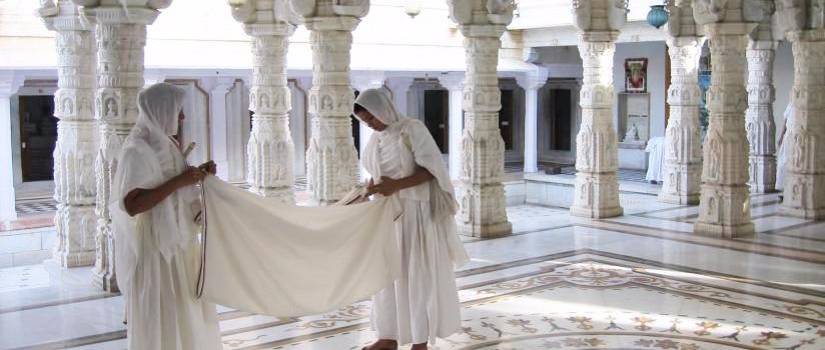It’s like the famous beginning of Charles Dickens’ novel A Tale of Two Cities: “It
was the best of times; it was the worst of times.” Religion can be the occasion for
expressing one's highest ideals, but also for expressing the worst of one's instincts.
Meanwhile, between the lofty and low, religious practices bring order and meaning
to the movements of ordinary people's daily lives. Our faculty and students explore
religion across the world, in many different contexts.
Major Exploration
As a religious studies major, you will explore the many roles religion has played
and continues to play both in society and in individual people's lives. Whether it
is Zen monks, ancient Christian martyrs, Muslim and Jewish women, Hindu saints or
Chinese philosophers, our courses introduce you to people and phenomena from all over
the world. Learning about religion provides an opportunity to explore different cultures
and develop a more global perspective.
Religious studies courses help to develop your critical-thinking abilities, your analytical
reading and writing skills and your capacity for interpretation and comparison, abilities
that are essential in every field of study. Through Summer Session programs and study abroad opportunities, students have been able to travel to India, China, Japan, Greece, Turkey and elsewhere.
Typical courses for religious studies majors include:
- Exploring Religions
- Hebrew Bible
- New Testament
- Introduction to Islam
- Introduction to African-American Religions
- Morality, Ethics, and Religion
- Religion, Medicines, and Healing
- Religions of South Asia
- Religion and Science: Human Questions
- Psychology of Religion
Intensive Track
Students may choose the general major or may pursue an intensive track, which includes
an advanced project. With the intensive major, you'll also take one additional course at the 300 or 400
level. With advisor approval, you may substitute a course from another department, including languages (beyond the general
requirements), classics, philosophy, history and anthropology, that directly relates
to your research.
Students who fulfill the requirements for an intensive major and graduate with a minimum
GPA of 3.75 in major courses and 3.5 overall will be awarded their degree "With Distinction
in Religious Studies" upon graduation.
Minor
A minor in religious studies is a valuable way to enhance your major, whatever it
is. A total of 18 credit hours in Religious Studies courses is required for the Religious
Studies Minor degree.
Your Future in Religious Studies
Graduates with a BA in Religious Studies may want to pursue masters and doctoral degrees
at USC in areas related to Religious Studies such as: Anthropology, Philosophy, History,
English, Psychology, etc. Some may consider getting a Master of Divinity or Doctor
of Divinity in theology or pastoral ministry, at other instututions. Religious Studies
graduates also have gone on to professional schools, including both law and business
schools.
The foundation of the Religious Studies degree prepares the graduate with a greater
comprehension of the globally interactive and complex ways human religious thought
and practice intersect with many other fields of study.
